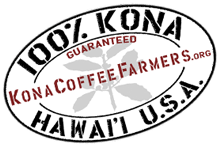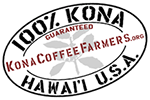Kona Coffee Farmers Association Questions to West Hawaii State House of Representatives Candidates
Question One:
For more than 28 years Hawaii has been the only region anywhere in the world to authorize by law the use of its origin names on packages of an agricultural product (coffee) with only 10% genuine content—HRS 486-120.6. For more than 28 years Kona’s coffee farmers have been seeking reform of this coffee labeling law. In 2007 the Legislature made a factual finding that this law causes consumer fraud and degrades the “Kona Coffee” name (SCR 102, 2007), but the Legislature has repeatedly failed to enact bills to reform the law.
IF ELECTED, WILL YOU INTRODUCE LEGISLATION TO INCREASE THE MINIMUM % IN HAWAII COFFEE BLENDS TO 51% AND REQUIRE LABEL DISCLOSURE OF THE % OF NON-HAWAII GROWN COFFEE IN THE BLENDS? [See HB 1886 HD1 introduced in the 2020 Session]
IF YES, WHAT ACTIONS WILL YOU TAKE IN SEEKING PASSAGE OF THIS LEGISLATION?
Responses:
Candidates for District 5:
Colehour Bondera: Yes, I will introduce such a piece of legislation, at minimum. Broad support from other legislators, especially heads of both Agricultural Committees will be sought to build upon. Additionally, I will work to ensure passage via communication with the HDOA, with coffee farmers, with CTAHR, and with interested consumer, education, agricultural, and other groups across the state to build upon a foundation of supporters from a range of positions and locations.
Further, I will communicate with Hawaii US House Representatives and US Senators, with the goal to be sure that the State is influencing federal laws, and adhering to international norm. Will work with oriGIn at the international level to seek such international standards.
Additional actions will be to collaborate with fellow legislators to prioritize such an effort to make clear that such a base foundation will allow Hawaii to act more self-reliant. Let us not be so reliant upon imports for revenue generation, instead lets’ keep more resources in Hawaii—which is vital to recovery from Covid19. We must first look out for ourselves in Hawaii for our economy to survive such turbulent times.
Citlalli Johanna Decker: If elected, I would bring this issue to the People I represent and present the argument that the current statues allow for misunderstandings and degrades the name of “Kona Coffee”. If the People agree that we need to resolve this through legislation, and I believe they will, I will champion the cause.
Jeanne Kapela: Yes. As someone who grew up on a small coffee farm, I am eager to introduce legislation to require Hawai’i coffee blends to include at least 51 percent of their content from the Hawaii region named on their labels. I also support requiring companies that sell blends to disclose the origin of all non-Hawai’i grown coffee used in their products.
Additionally, I will work with the Hawai’i Lodging and Tourism Association to increase the use of 100 percent Kona coffee in visitor accommodations, so that our district’s farmers are able to thrive financially as our economy recovers.
Finally, I will champion legislation to protect the Kona and Ka’u Coffee industries from predatory, mainland-financed corporate farming operations, whose business practices heighten the threat of invasive species in our district, harm the financial well-being of West Hawai’i’s hardworking coffee farmers, and jeopardize our world-renowned products.
Michael Last: I will propose that 100% be from either the Kona, Kau, Kauai or Maui districts, depending on where it is grown. Anything less is just wrong. And who are the majority of the legislatures? Democrates!
Candidate for District 6:
Nicole Lowen: Yes, I will introduce and/or co-sponsor legislation to increase the percent to at least 51% Kona Coffee and other labeling provisions. As in prior years, I will continue to advocate for the passage of this in whatever ways I can.
Candidate for District 7:
David Tarnas: Yes, I was a cosponsor of HB1886 in the 2020 session and I would be happy to introduce bills in the next session to advance these two policies. I will advocate with other House members for their passage in the House when the bills come to the Committees and the House floor. I would ask Committee Chairs to schedule hearings on the bill.
Question Two:
Hawaii’s coffee labeling and advertising law (HRS 486-120.6) does not apply (1) to Ready-To-Drink coffee beverages (prepared coffee sold in bottles, cans and cartons), or (2) to labels on inner wrappings given, but not sold, to hotel guests, or customers in waiting rooms, or others. As a result, the labels of these products often use Hawaii origin names (“Kona Coffee”, “Ka’u Blend Coffee”, “Maui Coffee”) without disclosing how much, if any, of the coffee is actually grown in the named region.
IF ELECTED, WILL YOU INTRODUCE LEGISLATION TO REQUIRE THAT LABELS ON THESE TWO TYPES OF COFFEE PRODUCTS COMPLY WITH HRS 486-120.6? [See HB 1897 introduced in the 2020 Session]
IF YES, WHAT ACTIONS WILL YOU TAKE IN SEEKING PASSAGE OF THIS LEGISLATION?
Responses:
Candidates for District 5:
Colehour Bondera: Yes, I plan to spearhead legislative efforts to seek truth-in-labeling laws, and see these two examples in the coffee industry as a logical starting point. I will work with Consumer Affairs leadership, the Agricultural committees, and with other groups and other legislators to correct this labelling problem, and get our Hawaii products to be clearly labelled.
My efforts will include consultation with legislators and laws in other states, to ensure that such details do not need to continue to be such a burden for the well-being of farmers; rather require crafting to protect the citizens, and not simply allow for outside interests to govern how rules and laws are put into place.
Citlalli Johanna Decker: If elected, I would bring this issue to the People I represent and present the argument that the current statues allow for using the Hawaiian culture and locations to sell a product that may not even contain any of the coffee that our farmers work so hard to produce. The domino effect is pickers are paid a lower rate and farmers have to look elsewhere to sell product. At least 75% of the coffee sold in the tourist industry should come from coffee grown and produced in the Hawaiian Islands. If the People agree that we need to resolve this through legislation, and I believe they will, I will champion the cause.
Jeanne Kapela: Yes, I will sponsor and strongly support legislation requiring ready to-drink coffee beverages and products whose labels on inner wrappings are given to hotel guests and other customers to disclose the amount of Hawai’i-grown coffee they contain.
Companies that use Hawai’i origin names for products that don’t actually contain significant amounts of coffee grown in Hawai’i are, in my view, exploiting Kona’s and Ka’u’s coffee farmers, whose products are known throughout the world. They are stealing the reputation of West Hawai’i’s farmers and the legacy one of our state’s most iconic products.
I will not tolerate the theft of our community’s agricultural heritage. As a legislator, I pledge to do everything in my power to target and heavily regulate greedy companies that abuse Kona coffee farmers to pad their bank accounts. I will always put our farmers’ needs before corporate greed.
Michael Last: These products should (and must) comply with the same requirements as stated above.
Candidate for District 6:
Nicole Lowen: Yes, I support this and am willing to introduce and/or co-sponsor legislation and advocate for it’s passage. I also support urging the Dept. of Agriculture and the State of Hawaii to take the needed steps to register Kona as a geographic indicator with the US patent and trademark office, which would provide some protections so that we would not have to go down the road of trying to anticipate every possible kind of Kona Coffee product to add to the list to which labeling laws should apply.
Candidate for District 7:
David Tarnas: Yes, I voted for HB 1897 in the 2020 session and would support a bill to achieve this policy objective in the next legislative session. I would be happy to cosponsor the bill and would advocate with other House members to support the bill in Committee, ask Committee Chairs to have a hearing on the bill, and to vote for the bill when it comes to the entire House for a vote.
Question Three:
Since 1998 a USDA regulation (7 CFR Sec 319.73-2) has prohibited importation of green (unroasted) coffee beans into Hawaii and Puerto Rico, the only US commercial coffee growing areas. Importation of green coffee creates risks of spreading devastating coffee pests and diseases. As an example, “coffee berry borer” was introduced into Hawaii in 2010 with severe economic impact on our coffee farmers. Yet Hawaii has ignored, and continues to ignore, the federal regulation and has allowed tons of unroasted coffee beans to be imported annually, putting coffee farmers at risk of losing their trees and their livelihoods from “coffee rust” and other pests and diseases.
IF ELECTED, WILL YOU TAKE STEPS TO HAVE THE HAWAII DEPARTMENT OF AGRICULTURE EXPLAIN WHY IT IS IGNORING SECTION 319.73-2—PARTICULARLY IN LIGHT OF THE 2005 DENIAL BY USDA OF A FORMAL REQUEST FROM HAWAII TO AMEND THE REGULATION? [Note—the basis for the denial was that the Hawaii request posed too great a risk of introduction of coffee pests and diseases.]
Responses:
Candidates for District 5:
Colehour Bondera: Yes, my full intention as a legislator is to work for the farmers of District 5 to get this law properly enforced. A State department (the HDOA) must follow the USDA rules. By choosing not to enforce this rule, the HDOA is subjecting our farmers to economic risk, which is not viable.
Based upon my work with the USDA (as I served from 2011-2016 on the National Organic Standards Board), it is very important to communicate directly among the parties making decisions at both the State of Hawaii, and the US legislative and government levels. That would be something which I would facilitate, building upon relationships already established.
Citlalli Johanna Decker: Yes, I will demand full disclosure, full accountability and full remedy.
Jeanne Kapela: It is astonishing that Hawai’i continues to allow unroasted coffee beans to be imported, especially given that climate change increases the threat of invasive species. At the same time, the State Legislature has persistently failed to provide adequate funding for invasive species detection and prevention.
I will work to fully fund the Department of Agriculture’s invasive species prevention programs, including by increasing funding for the Hawai’i Invasive Species Council in the state’s base budget. Additionally, on my first day in office, I will issue a letter to the Hawai’i Department of Agriculture and Hawai’i Attorney General demanding an explanation for why the state is failing to follow USDA regulation 319.73-2 and calling upon the Attorney General to compel the Department of Agriculture to comply with the law.
Finally, if needed, I will introduce legislation forcing the Department of Agriculture to follow the law by incorporating the applicable provisions of 319.73-2 into state law, so that our coffee farmers are adequately protected from invasive species and agricultural diseases.
Michael Last: Absolutely! Again, I will be fighting the organized political parties, the Democrats, and to a lesser degree the Republicans.
Candidate for District 6:
Nicole Lowen: Yes, existing laws should be enforced, including the importation of green coffee beans. Proper enforcement does mean we must also fund the needed positions to undertake enforcement. This issue has impacts beyond the coffee industry, and affect the biosecurity of the state as whole. I will support the need to enforce this law, as well as continue to advocate for funding our state’s biosecurity plan.
Candidate for District 7:
David Tarnas: Yes, I would be happy to work with other legislators and the Kona Coffee industry representatives to push HDOA to enforce this regulation.

